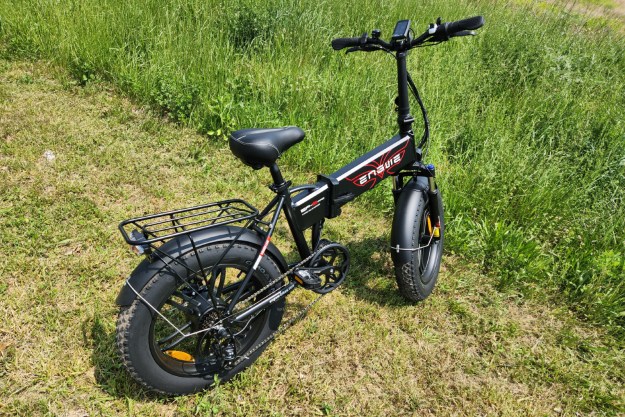
All of the Appalachian Ultralight packs are frameless and have a basic feature set that includes comfy 3-inch wide shoulder straps, side mesh pockets for storing water bottles and a sternum strap for a close and stable fit. Though all the packs share these core features, each design is unique, offering a combination of materials and features for section hikers, thru-hikers, and even extreme minimalist hikers. “Altogether, we believe we have a ‘just right’ backpack for every lightweight backpacker,” said Appalachian Ultralight founder Cody Miller.
Appalachian Ultralight’s flagship product is their Thru Hiker’s pack, a 45-liter bag that can carry everything you need for your longer treks. The Thru Hiker’s pack is available in two different versions — a rugged robic version for those who are hard on their gear and a lightweight Cuben Fiber version for those who run lean and mean. The Robic version weighs just under one pound (15.75 ounces) costs $220, and is made with a durable 420 denier robic nylon fabric that is water resistant. The Robic version is the rugged model meant to withstand most of the bumps and bruises you encounter on the trail. The $260 Cuben Fiber version can hold its own in the woods, but is not as durable as the Robic. What you get in return for a slight drop in durability is a lighter pack (10.25 ounces) with near-waterproof protection for your hiking essentials.

New to the lineup is the 35L UL Speedpack, which is a smaller version of the Thru Hikers bag. The bag is designed for section hikers and experienced ultralight backpackers who struggle to fill a 45-liter bag. Similar to the Thru-Hiker bag, the UL Speedpack is available in either a rugged Robic version (13.5 ounces) or a lighter weight Cuben fiber model (9 ounces). Both bags feature a hip belt, a padded foam harness, and a large mesh back panel with outer shock straps. Besides materials, the upfront cost also differentiates these models, with the Robic version costing $200 and the Cuben fiber model coming in slight higher at $240.
Also new to the Appalachian Ultralight lineup are the 45L No Nonsense pack and the extreme ultralight 30L Balloon pack. Both of these packs are lightweight and minimal in their aesthetics. The No Nonsense pack is constructed from 2.2-ounce hex ripstop nylon that is treated with polyurethane for water resistance. The budget pack costs $180 and features a single large mesh pocket and a hip belt. It weighs 10.75 ounces. The $200 Balloon is meant for hikers who want to travel as light and lean as humanly possible. It’s an experimental pack that weighs in at an astonishingly svelte 6.25 ounces and can carry a base weight of 8 pounds or less. To keep the Balloon as minimal as possible, the 30L pack is comprised entirely of 1.43 oz Cuben fiber fabric. It also lacks a hip belt and has a single Cuben fiber outer pocket.
Appalachian Ultralight now is accepting orders for all of these bags through its website. Each bag is hand crafted and made to order, which means there is a short lead time for any purchase. To see what goes into each pack, just check out this Facebook Live video that shows how the company makes it Cuben Fiber UL SpeedPack. The attention to detail and quality workmanship you get from Appalachian Ultralight makes any processing time well worth the wait. And if that isn’t enough, Appalachian Ultralight also will donate 10 percent of its proceeds in 2017 to support groups that fight against social injustice.




